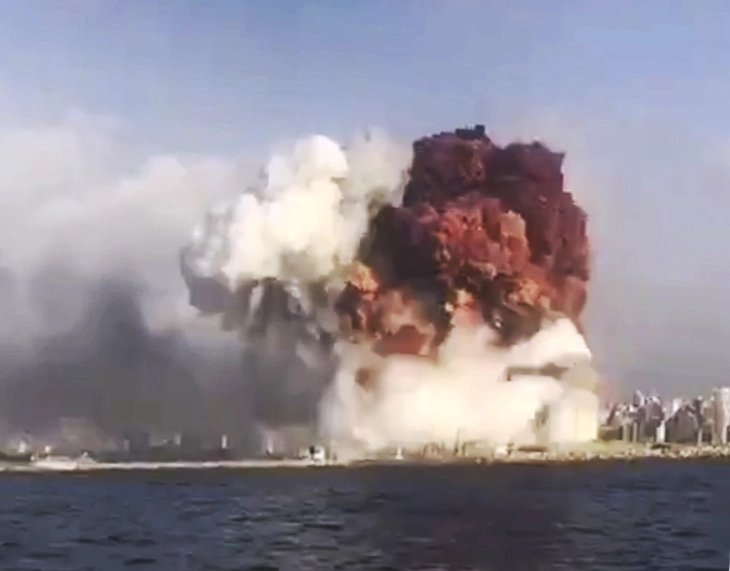Israeli army says Hezbollah commander targeted in Beirut blast
- The Israeli military said Tuesday it has carried out a "targeted attack" on a commander of the pro-Iranian Hezbollah militia in Beirut, after an explosion was heard in the Lebanese capital.
- Post By Angel Dimoski
- 20:53, 30 July, 2024

Tel Aviv/Beirut, 30 July 2024 (dpa/MIA) - The Israeli military said Tuesday it has carried out a "targeted attack" on a commander of the pro-Iranian Hezbollah militia in Beirut, after an explosion was heard in the Lebanese capital.
The blast comes three days after a deadly rocket attack on the Israeli-occupied Golan Heights. According to the Israeli army, the commander was responsible for the deaths of the children and young people hit in the attack, as well as other civilians.
Earlier on Tuesday, the Lebanese news agency NNA reported an "enemy attack" in the Beirut suburb of Haret Hreik.
The Hezbollah-affiliated television station Al-Manar showed images of chaotic scenes. At least four buildings were damaged in the attack.
Eyewitnesses reported that the attack targeted an eight-storey building.
Earlier, Israel's Defense Minister Yoav Gallant wrote on X: "Hezbollah has crossed a red line."
According to rescue workers, a civilian was killed in a rocket attack on northern Israel in the afternoon. There had previously been rocket alarms in towns on the border with Lebanon.
After at least 12 people were killed in a rocket attack in the Druze town of Majdal Shams on the Israeli-annexed Golan Heights on Saturday, the Israeli government announced a retaliatory strike.
Israel has blamed Hezbollah for the attack, but the Shiite Lebanese movement has denied any involvement.
Since the beginning of the Gaza war, there have been repeated confrontations between Israel's army and militant groups such as Hezbollah in the Israeli-Lebanese border region.
According to their own statements, Hezbollah is acting in solidarity with Hamas: It only wants to stop its attacks when there is a ceasefire in Gaza.
Numerous civilians were killed in both Israel and Lebanon. Tens of thousands of residents left their hometowns on both sides of the border.
It is the worst escalation since the second Lebanon war in 2006.







